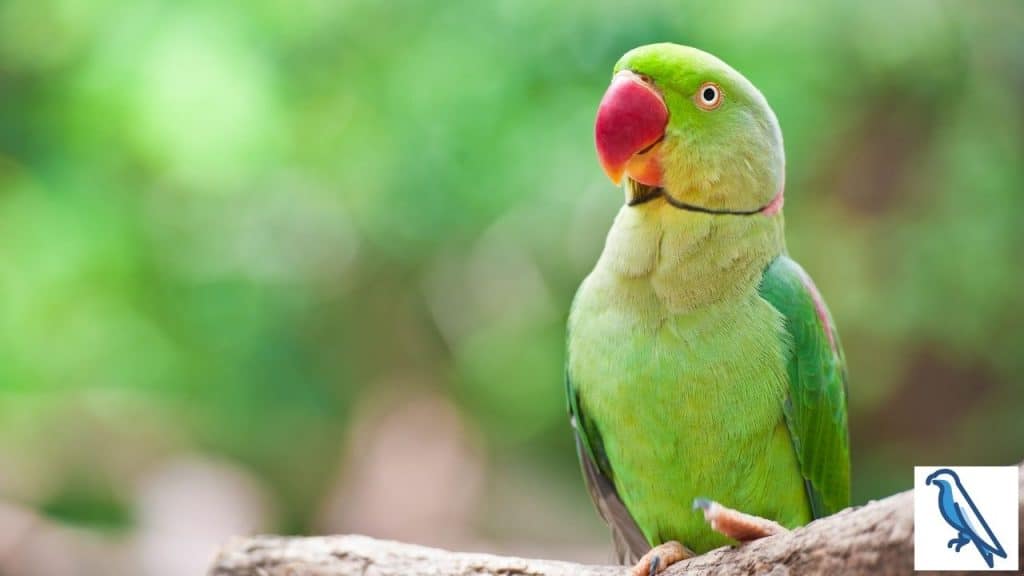
For centuries, animals were raised and cared for by humans for their purpose.We domesticated dogs and cats for our companionship. Cows, pigs, and sheep for food and clothing. While bulls, donkeys, horses, and camels for labor and transport.
However, in recent times, humans have developed an unrelenting desire to pet birds and fish for their beauty and intelligence.
It may make you wonder whether birds like parrots can be domesticated.
No, and Yes, as well. Parrots cannot be domesticated as they are wild at heart. They continue to remain aggressive even in captivity.
At the same time, parrots are intelligent birds. Their ability to understand and mimic human speech can help develop a special bond with their primary caretaker.
Alright! So, parrots are intelligent birds, and humans crave to capture them for the company.
Although parrots display traits of companionship, they remain wild at heart.
Let us now delve deeper to understand why it is difficult to domesticate a parrot despite showing signs of compatibility.

Why Is It Difficult To Domesticate Parrots?
In the wild, parrots primarily live in flocks and forage considerable distance looking out for food. Among birds, parrots are considered to be intelligent and have superior memory than others.Some species of parrots can understand and mimic human speech. Although they can show affection towards humans, it is still a task to domesticate them.
Let us look at some of the traits that make it challenging to domesticate a parrot.
- Territorial: Parrots are incredibly territorial. They may even perceive family members as intruders and may show anger or resentment towards them. Parrots may not always reciprocate with love and affection with other house inhabitants.
- Over Defensive: If a parrot develops any affection towards any cage inmate or with any family member, it will try to defend and keep the other family members or strangers away from them. They develop jealousy and try to safeguard their loved ones.
- Loyalty Issues: This may surprise a lot of people. Parrots are different than other domesticated animals. Unlike cats and dogs, they are picky in creating a bond with humans, which means you may not receive similar love and affection in return from your pet parrot.
- Social Demands: In the wild, parrots live in flocks and remain connected with their mates. Parrots will find it challenging to live independently, as they crave their mates and caretaker’s love and time.
- Unreasonable Expectations: Humans perceive parrots as a source of entertainment. It is mainly due to shows where professionally trained parrots are used for recreation. Such high expectations can create unwarranted stress on the bird.
- Life Expectancy: Parrots have the longest life span among birds. As per Science Focus, some species, like c0ckatoos and Amazonian parrots, can live till 75 years or even older. It indicates that some species may outlive their primary caretakers. Parrots can become your family member and will need a lot of your time and attention.
- Hygiene: Among birds, parrots are messy. In the wild, they don’t care to keep their surroundings clean and replicate similar behavior even in captivity. They create a mess while eating, drop their feathers, and waste everywhere in the cage or your house if left open.
- Complex Diet: Parrots are omnivores, which means that they can eat both meat and vegetation. Most parrots like to eat seeds. Besides, their diet contains buds, flowers, fruit, nuts, and insects. It will cost you dearly to provide them a variety of nutrition through their daily diet.
- Strong Beak: Parrot beak helps them in doing various activities required for their survival. It is equivalent to a human’s hand. They use their beaks to eat, groom, feel, and hold objects. Their beak can damage the toys, perches installed inside the cage. There are instances where large parrot species have used their beak to break open the enclosure. Parrots are capable of inflicting wound even to their caretakers if they are stressed or disturbed.
Okay! It looks pretty tricky to domesticate parrots. Unlike other domesticated animals like cats and dogs, parrots are not calm in their demeanor.Let us understand, despite these challenges, why humans love to domesticate parrots.Related Further Reading:
- Do Parrots Cry? + Why Do Parrots Cry?
- Do Parrots Dream? + What Do They Dream About?
- Do Parrots Fart? + Reason Why Parrots Don’t Fart
- Do Parrots Have Teeth? ( Role Of A Beak In Parrots Existence )
Why Are Parrots Domesticated?
Parrots have stunning feather patterns and come in different sizes and colors that make them the most sought after by bird lovers.
Parrots can be very rewarding pets to their pet owners due to their ability to understand and desire to interact with humans.
Let us find out the reasons why humans are attracted to parrots and want to domesticate them.
- Beauty: Many parrots are vividly colored, and some species are even multi-colored. Parrots have an array of stunning colors and stunning feather patterns. Humans are always fascinated by their beauty and crave to keep them as pets.
- Intelligence: Among pet birds, parrots are intelligent. According to Forbes.com, researchers have found the reason for their remarkable intelligence. Humans are drawn towards their ability to understand. Their brightness allows them to convey their feelings, such as love, affection, and even jealousy towards house members.
- Mimic Speech: Many pets understand human speech and respond accordingly, but what sets parrots apart is understanding and mimicking human speech. Parrot’s desire to interact with humans has made them unique, and therefore, humans love to keep them as pets.
- Ability to Learn: Parrots are intelligent birds. They have cognitive skills that allow them to understand and learn new skills. Humans are fascinated by this ability and want to train their pets to learn new tricks for their amusement.
- Satiate Ego: For centuries, humans have captured parrots for their companionship. Humans can express their feeling, start an interaction, and even use them for entertainment. They do not care about the pet bird’s happiness and want to keep it, even if the bird is unhappy in captivity.
Basically, it is difficult to domesticate parrots and expect them to behave like your pet cats and dogs. Birds will always act like birds.
You may provide them an abundance of love, nutritious food to eat, and sanitary living conditions, they may still not reciprocate the way you want them to.
Recommended Further Reading:
- Can Parrots Be Potty-Trained? (Steps To Toilet-Train A Parrot)
- Can Parrots Live Alone? (What Are The Consequences?)
- Can I Sleep With My Parrot? ( Risks Involved )
- Do Parrots Lay Eggs? (When, How Do Parrots Lay Eggs)
Parting Thoughts
Parrots are beautiful and intelligent birds that attract humans who crave their company. They have cognitive skills that allow them to understand and mimic human speech.
Despite all these unique abilities, parrots cannot be domesticated like other pet animals. Parrots are temperamental, aggressive, and are capable of inflicting a wound.
They have strong beaks, which work like a human hand and are vital for their survival.

Hi, There and Welcome to BirdsNews.com, is here to help you learn and care about pet birds. and this blog is a journal of everything I’ve learned.
